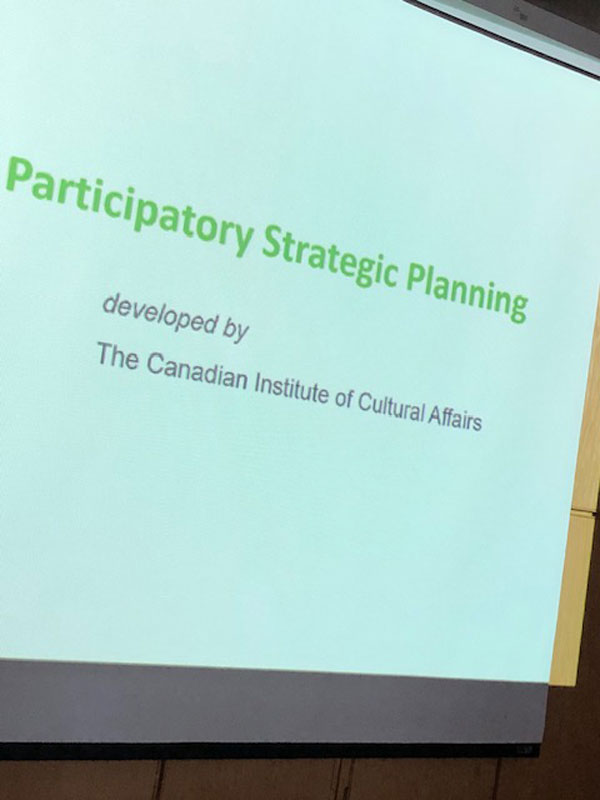
Link to a PDF of the draft invitation.



I am very happy to be here today, to not only represent the presence of women
in municipal politics but to bring a rural perspective to our discussion.
The cities in which my respected colleagues serve have thousands upon thousands
of people. My community of Branch has approximately 250 people. While we do have
a history of female dominated municipal politics in Branch and currently an entirely
female town council, it is my personal view that women's leadership in rural
communities is not a new concept. Seemingly, the women have always been the leaders.
We have been the teachers, the nurses, the midwives, the care takers,
the fish plant workers, the church-fundraiser organizers. We have been
the trusted critical decision makers, as well as the nurturers.
In many cases women have been the grassroots leaders and the advocates
that have shaped our rural communities. We, as women, know our communities
well and we know the people, their families, and their needs
for an inclusive and safe community.
Speaking specifically for Branch, during my lifetime we have had always had
a female mayor and a strong presence of female leaders in community organizations
in both formal and informal capacities. In fact one of my earliest memories
as a child is sitting at a community meeting inside the stalled fish plant,
my feet not touching the floor, watching the heated exchange over the closure
of the fish plant. In my memory, it is my great-aunt who is on her feet at the front
of the room, confidently addressing a man in a suit. In that moment she was representing
the community - she represented the families that were about to be challenged with the looming
closure and she knew the impact it was about to have on the community.
Another example of the informal leadership that exists took place just a few years
ago. A construction project was happening outside the community and there was a lot
of dump truck traffic travelling through the community. Some mothers in the
community became concerned at the speed of these trucks and after a few failed
attempts of nicely asking the drivers to slow down, some women got together
one day and decided to physically block the road with their cars to make their point.
Now, inevitably the drivers called the RCMP and after a couple of hours the road
was reopened, but the drivers of those trucks heeded the message that the women
sent that day. The women were not about to let something potentially endanger people in the
community and they found a way to stop it. They found a way.
So it came as no surprise to me in the Fall of 2013 when all female town council
was elected, with over 90% voter turnout in the community. I had been elected
for the first time two years prior in a by election and was fortunate to learn
from the outgoing leaders, one of which was also a woman, the outgoing mayor.
Having females in positions of power in the community was not something that
was not an anomaly to me, and likewise not an anomaly to people in the community.
In my experience of living rural there seems to be an ownership of the community
by the people. With that ownership comes a fierce pride of place, a willingness
to advocate, to overcome - to practice rural resilience. At the forefront of
these causes in my community's history it has been the collaborate voices of the women
who were determined to maintain their communities. Those women paved the way for people
like me who also possess a strong pride of place and dedication
to their community.
The trend of elected female officials grew in the early 1990's. That was an important
decade for many rural communities - as we faced the economic challenges of a cod moratorium.
Through discussions with those who lived and worked in the community at that time,
it was in that era that many of the men started traveling outside the community for work.
Going West, going North, going wherever there was work to be done. I don't think it was a
coincidence that it was during this period that women began leading the town council.
We just continued to do as so many of us done in the past, strive to build and maintain
our communities. It is the women's historical participative action, in a variety
of community roles, that has established confidence in female leadership in my rural
community and to us as residents, female leadership isn't new, it's familiar and it works.